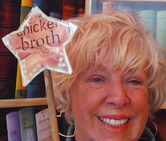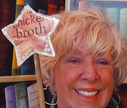 Once upon a time, six Talented Writers joined a critique group. They expected business as usual: a bit of manuscript evaluation and lots of chit-chat, often unrelated to the quality/focus/context of the manuscripts being critiqued.Surprise! Surprise! Surprise! The volunteer group leader (a hard-core critiquer and former acquisitions editor) had other ideas and was determined to poke, prod, push, and encourage the Talented Writers to mature their story telling skills and get the heck published! Chit-chat became the first casualty. One smartphone timer and a Talking Stick (formerly known as a Magic Wand) helped Talented Writers stay on track, and listen to critique comments without speaking (since they were not in possession of the Talking Stick). Next came a radical change in manuscript evaluation. As the Talking Stick was passed around the circle, each critiquer first shared what "worked" for them and why. Two sentences max. Next, they shared what "didn't work" for them and why. Two sentences max. They passed the Talking Stick to the next critiquer. The Talented Writer who was being critiqued, listened and did not respond unless they were able to arm wrestle the Talking Stick away from a fellow critiquer (which hardly ever happened). After everyone shared their perceptions, left-over minutes were used by the Talented Writer to make comments, ask questions, defend positions, or indulge in meaningless chit-chat. However, as you might expect, in the early days of the process,most of the Talented Writers couldn't refrain from interrupting, responding, defending, explaining etc., etc., etc. This resulted in their evaluation time running out before everyone shared their "what worked" and "what didn't work." Whine. Whine. Whine. Tuff beans. Very quickly the Talented Writers evolved to listen instead of talking. The intended consequence of Talking Stick has been the elevation of a group of pretty good Talented Writers to become pretty darned good Talented Writers. They've become better listeners, more focused critiquers, and have strengthened their writing skills (the goal all along). They've increased their potential to become published authors. Moral of the story: Focus. Listen. Think. Make a Talking Stick. Use it. Does your critique group have a Talking Stick? Or, how do you handle the issue of evaluation time wasted by chit chat? Or is it even an issue with your group? Leave your comment below.
0 Comments
Your comment will be posted after it is approved.
Leave a Reply. |
If you’d like to re-post any of my blogs, help yourself. Please reference the source as: Molli Nickell. THE Publishing Wizard at www.getpublishednow.biz Archives
July 2016
Categories |


 RSS Feed
RSS Feed
